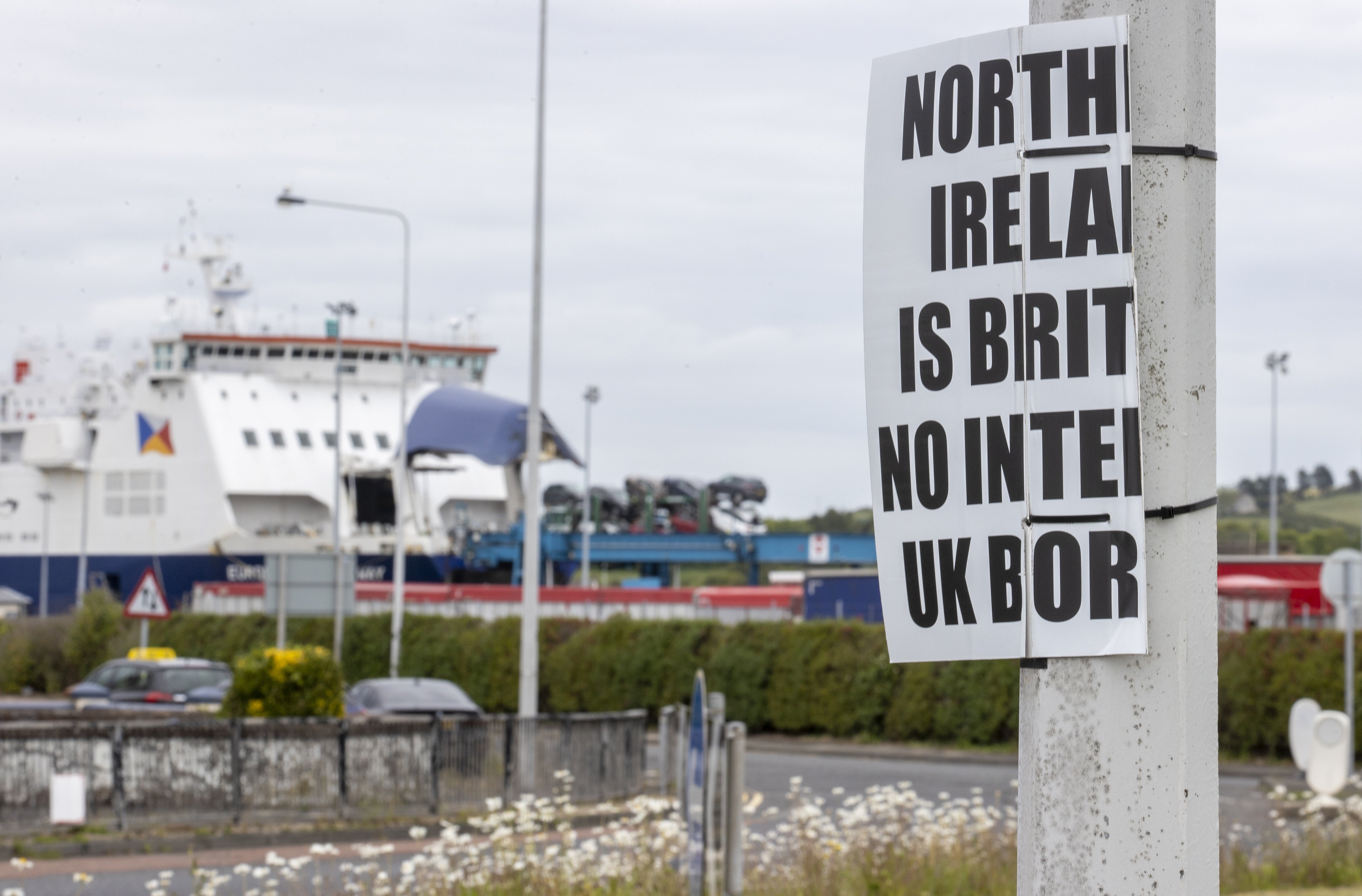Can the deadlock over the Northern Ireland protocol finally be broken?
Pressure is on as the 25th anniversary of the Good Friday Agreement approaches, says Sean O’Grady


Why is the Northern Ireland protocol in the news again?
As with his tax status and health arrangements, Rishi Sunak has been reticent about what he got for Christmas. However, we can make an informed guess that one thing he would have liked Santa to bring was a solution to the Northern Ireland protocol. Clearly a way through this intractable problem remains elusive. Equally clearly, the prime minister does not want the row to sour trade relations with the EU or the Biden White House, and he has other priorities to be getting on with.
Ideally, he would like some sort of rebalancing before the 25th anniversary of the Belfast/Good Friday Agreement on 10 April, the restoration of devolved government, and a goodwill visit from the American president. It remains a tough challenge, yet there are signs of hope and of progress, and the EU-UK talks have picked up pace, even if the ones between the local parties in Northern Ireland remain in stalemate.
What’s the problem?
The protocol has been a problem ever since it was agreed, in customary blase fashion, by Boris Johnson in order to get his Brexit deal over the line. “Sign first, sort it out later” seemed to be the ethos. Over the ensuing two years, the rebarbative Lord (David) Frost, Liz Truss and even Mr Johnson himself managed to wind up the EU and the DUP in equal measure – to no discernible benefit to anyone, except for those businesses in Northern Ireland able to take advantage of its unique status inside both the UK and EU economic jurisdictions.
Why don’t the unionists support the protocol?
The economic integrity of the United Kingdom of Great Britain and Northern Ireland was compromised by the insertion of a trade border across the Irish Sea, which was put there to prevent one being placed on the border between Ireland and Northern Ireland, which would go against at least the spirit of peace and the Good Friday Agreement. Unionists mostly hated the new arrangement, and the Democratic Unionist Party eventually ended up boycotting the cross-party power-sharing government in protest and as bargaining leverage.
What is the attitude of the European Union?
On the other side, the EU was frustrated by the failure of the UK and Northern Ireland governments to implement the trade barriers as agreed in the Brexit treaty. London said the EU was being too fussy, legalistic and strict; the EU asserted the supreme importance of the integrity of its single market. The British government presently has a bill, paused, that would simply abolish much of the protocol unilaterally, which would be a breach of its treaty obligations.
Talks were suspended for long periods while Ms Truss was foreign secretary and briefly PM. British sausages, sandwiches and rose bushes couldn’t easily be imported from Great Britain to Northern Ireland. Tempers flared.
Why are things moving now?
Personalities have changed, for a start. EU Commission president Ursula von der Leyen and vice-president Maros Sefcovic remain on the Brussels side, but the arrival of Mr Sunak, James Cleverly at the foreign office, and Chris Heaton-Harris and Steve Baker at the Northern Ireland Office (all of them Leavers) has established much better personal relationships. The UK has concluded a new agreement with Europe on customs data sharing, which both sides said provided a “new basis” for talks.
The UK has started to construct new border-control posts at ports in the province, with red and green channels for products relating to Ireland and Northern Ireland respectively, and there is some belief that the prosaic issue of sanitary and phytosanitary checks on livestock and fresh food can be resolved.
On the negative side, Sinn Fein and the moderate SDLP are refusing to attend talks with British ministers because Mr Cleverly didn’t extend an invite to the (all-Ireland) Sinn Fein president Mary Lou McDonald, and only sent one to the Northern Ireland first minister elect Michelle O’Neill. For what it’s worth, Sir Keir Starmer has travelled to Belfast and has been doing his bit to push things along.
What are the prospects?
Even if some sort of agreement can be concluded between the EU and the UK in the coming weeks, preferably without requiring treaty changes and excising the role of the European Court, it doesn’t necessarily mean that the DUP will agree to serve in the Northern Ireland executive with Sinn Fein and appoint a deputy first minister. Some critics claim the DUP is simply too proud to appear subordinate to the republicans, and the party is under electoral pressure from even more staunch and stubborn loyalist forces.
But then, things also looked dicey for a peace agreement back in the early months of 1998, until everyone made that final push for peace over the Easter weekend. The question no one can answer conclusively is whether that spirit can be rekindled now.






Join our commenting forum
Join thought-provoking conversations, follow other Independent readers and see their replies
23Comments